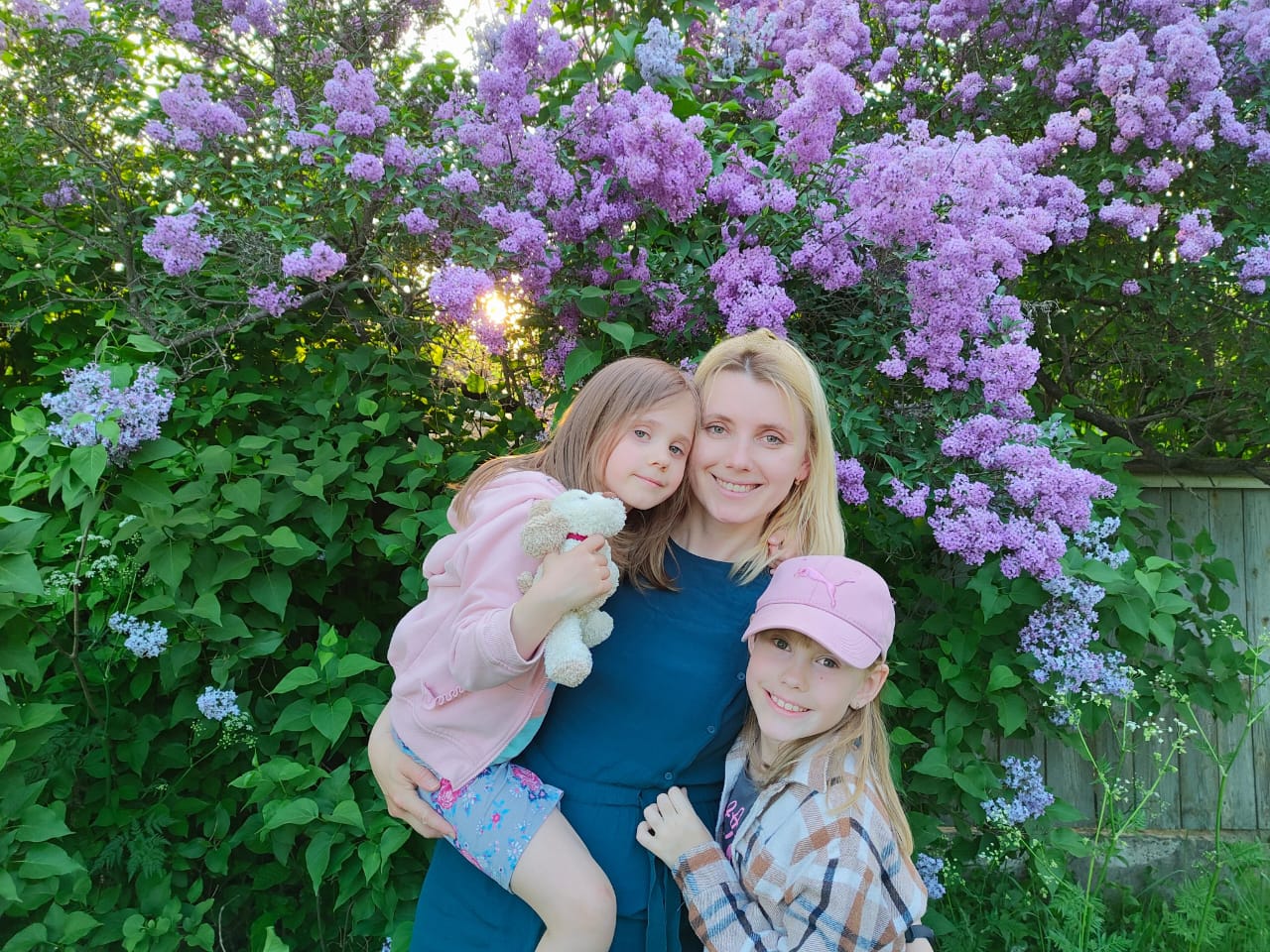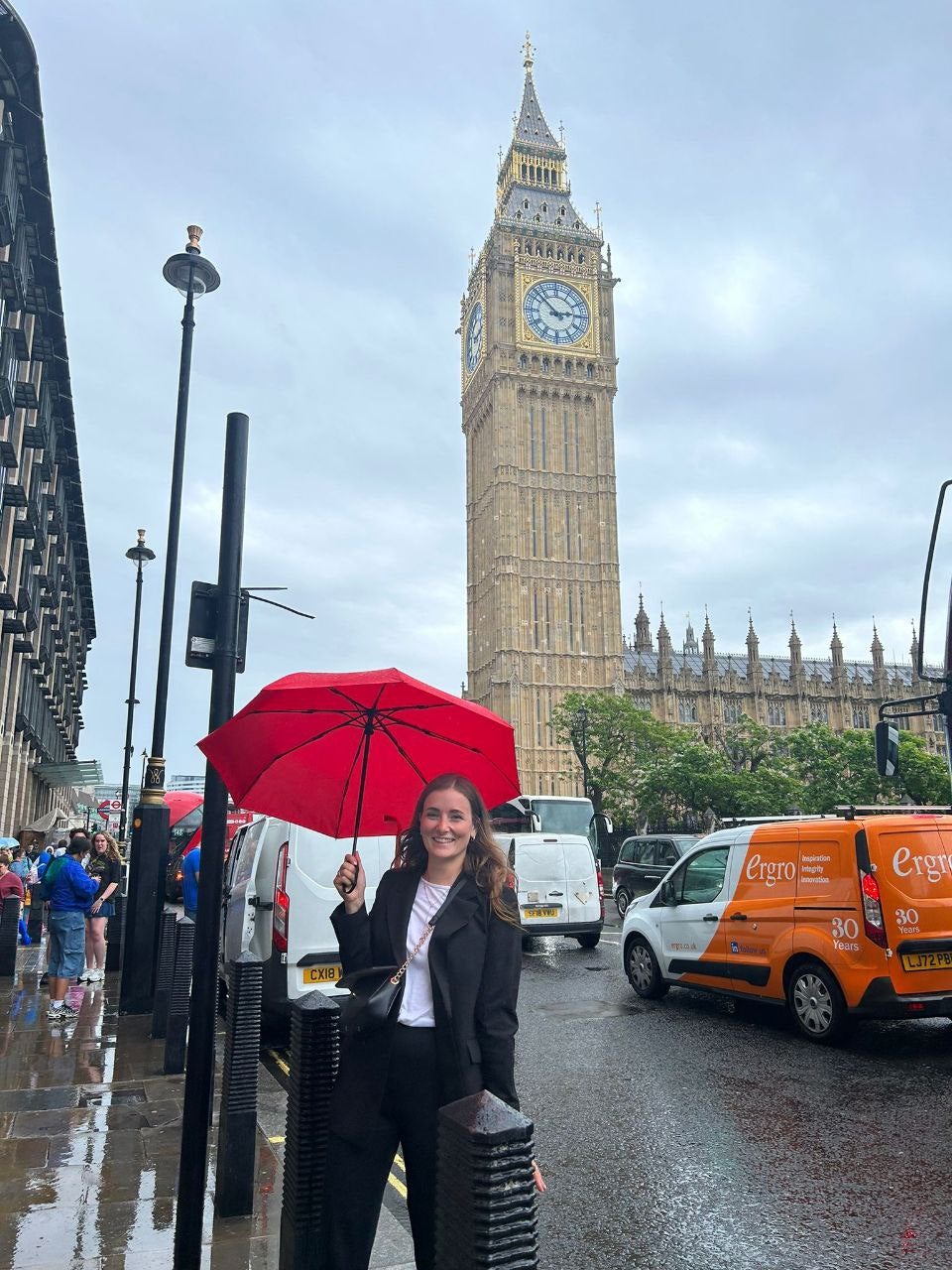‘Stay in a city being shelled, or take a risk moving’ - uncovering the human cost of Russia’s war on Ukraine
Almost a million Ukrainians have fled their homes since 2014, when Russia first invaded Ukraine. Since the full-scale invasion in February 2022 - causing the biggest displacement crisis in Europe since the Second World War - the International Rescue Committee has helped Ukrainians still in the country and across Europe to rebuild their lives. But with no end in sight to the conflict, thousands more Ukrainians affected by the instability are likely to need their help
Iryna’s body told her it was time to leave. “I started to have panic attacks,” she says. When Russia invaded Ukraine in February 2022, she remained in Kyiv for the first year of the war to support her family financially. But the terror of Russian bombs and air raid sirens pushed her to breaking point. “My mental health was struggling and my parents advised me to leave.”
During her journey to the UK, she was overwhelmed with feelings of fear and guilt. Her elderly parents were reliant on a small pension to survive and Iryna also left behind her friends and a successful career as an accountant. “Before the war, my life in Ukraine was really good, I had so many opportunities,” she says. She arrived at the doorstep of a host family in Petersfield, Hampshire, and knocked on the front door. It opened and her new life in England began.
Iryna’s story isn’t an isolated one. Europe is now home to six million refugees from Ukraine, who have fled their homes since Russia first annexed Crimea in 2014. Many may never return home. A survey by the International Rescue Committee (IRC), a charity that helps people’s lives that have been shattered by conflict, revealed that 87% of respondents had to leave their homes at least once since 2014, with 20% experiencing displacement multiple times. Over 36% of people also reported having to forgo basic necessities due to financial difficulties; and, worst of all, 74% said they’d been separated from a close family member.
It’s a heartbreak Svitlana knows all too well. She was an English tutor in her hometown of Chernihiv, where she lived a happy life with her husband and their two children. That was until war broke out. Svitlana evacuated to a small village in western Ukraine, taking her children and 70-year-old mother with her. Eight months later, they moved to the UK to give their children the best chance of living a peaceful life.

Svitlana now lives with a host family in Preston. "It was one of the hardest decisions of my life,” she recalls. “We had to choose either to stay in the city which was shelled and bombed and hope that it would come to an end or to pack our essentials and take a risk of moving.” It’s a decision that she is now at peace with. “When we arrived at Preston, we gave a sigh of relief. Finally, we got to a place with no air raid alerts. It was great to fall asleep without fear for the lives of your kids.”
For Iryna and Svitlana, the help of the IRC has been vital as both have embarked on a new and difficult chapter in their lives. Shortly after arriving in Hampshire, Iryna took part in the IRC’s orientation for newcomers and leadership training. The programmes are designed to help refugees from various different countries to navigate local services in the UK such as healthcare and education, and to support them to find employment and gain the skills that will allow them to prosper in the UK.
Iryna’s mental health is gradually healing and the training provided by the IRC has helped to rebuild her confidence. She volunteers as an interpreter for the local council and various other organisations. She is also part of a Ukrainian female choir, where she helps to translate and works part-time for the New Theatre Royal as a duty manager. Iryna's long-term goal is to become an English teacher. She is soon to finish her CELTA (Certificate in English Language Teaching to Adults) course at Portsmouth City College.
Svitlana also enrolled on the same orientation course with the IRC. It was the perfect way to begin her assimilation to life in the UK and share her experiences with other Ukrainians. “I can’t express my grati Svitlana’s tude in words,” she says. “The sessions were online, but it gave me the chance to socialise with other Ukrainians and learn about healthcare, education, emergency cases, rights and opportunities in the UK.” It’s also helping her with her career. “It helped me to understand how to write a CV and cover letter and navigate interviews. Thanks to this guidance, I’ve gained employment and self-employment as well.”

Two years on from the start of full-scale war in Ukraine and the future looks brighter for Iryna and Svitlana. “Looking back I’ve come so far from my New Year’s wish last year, which was just to survive,” says Iryna. “Now I can desire weekends by the sea and find a full-time job to become fully independent and help my family.” Svitlana is also feeling positive: “We’ve been surprised by the hospitality of our sponsor and his family,” she says. “I knew that British people are polite, tolerant and supportive, but I couldn’t imagine to what degree.”
Follow the link to donate to the International Rescue Committee and find out more about the crucial work they’re doing in Ukraine



Bookmark popover
Removed from bookmarks